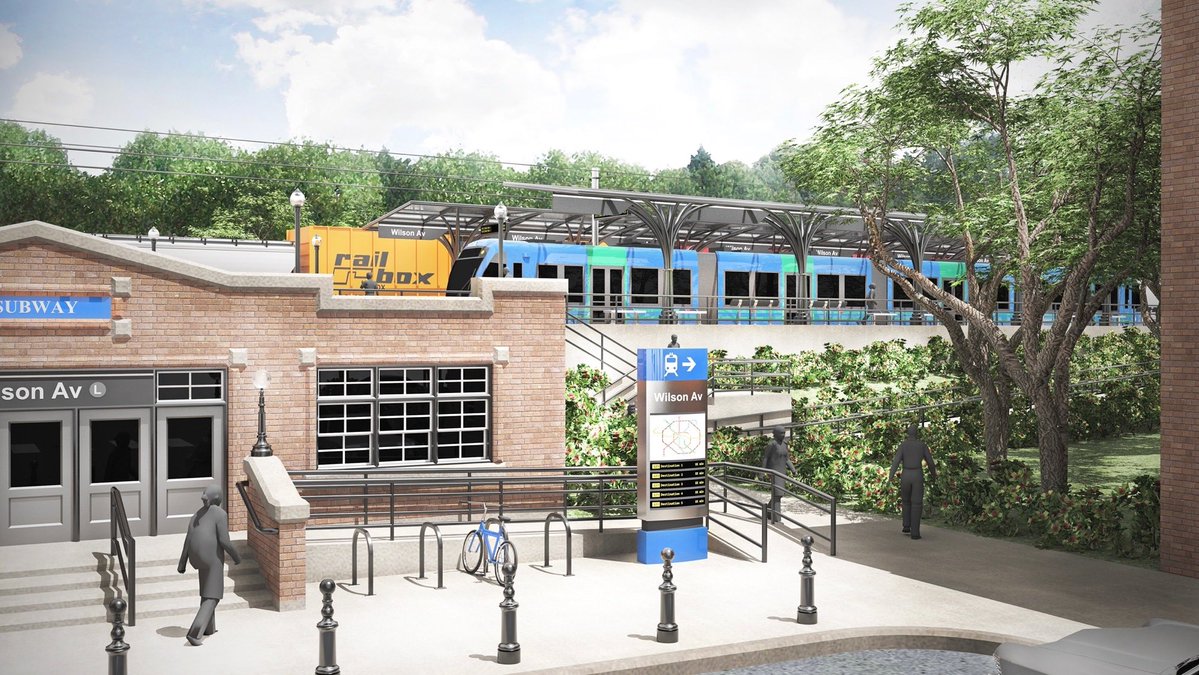The MTA is taking yet another step forward on the Interborough Express, the link between Queens and Brooklyn that the city desperately needs, by applying for a newly established grant from the recent infrastructure bill.
The grant, referred to both as the Mega Program and the less cool National Infrastructure Project Assistance program, is a $5-billion that the federal government created to support "multi-modal, multi-jurisdictional projects of regional or national significance" according to a White House fact sheet. The U.S. Department of Transportation, which will decide the winners on a competitive basis, lists highway, freight, and various rail projects as eligible; Transportation Secretary (and former mayor) Pete Buttigieg previously said he would announce winners in the fall.
According to a an MTA spokesperson, the grant money wouldn't pay for any construction, but would be used for its initial environmental review and design.
Even though the review and design don't involve physical construction, transit experts say those aspects are no small potatoes in the price of a project. In the case of the Interborough Express, the MTA is currently looking at three options that will use an already existing right-of-way between Bay Ridge and Jackson Heights to build one of the following: a commuter rail-like train, a train that uses lighter cars more similar to subway cars, or a bus rapid transit system. Each scenario will need to be studied and gamed out for the MTA's environmental review, which takes lots of money and months to finish.
"[Environmental review] can be expensive," said Felicia Park-Rogers, the director of Regional Infrastructure Projects for Tri-State Transportation Campaign. "In this case, the analysis they have to do is pretty rigorous. Our favorite option is the rail option, and there are some pretty serious engineering evaluations that have to be done in terms of expanding the tracks, and the grading. There are also a couple of overpasses that are a little too small, so they have to look at, could they expand them or go down to double tracks instead of the quadruple tracks that they want to use."
The initial Mega grant will only be a first step for the project that still has a multiple-year timeline. The MTA has said that the environmental review should take under two years, and agency Chairman and CEO Janno Lieber previously said that he expected construction on the project to take between three and five years. The Interborough will also have to be fit into the 2025-2029 MTA capital plan, but the grant application, and the upcoming public meeting on the project on May 19, is the kind of proof of life that shows the MTA is serious about getting this done.
"Any additional resources for this is, I think, a good thing and means the project is increasingly likely to happen," said Regional Plan Association Executive Vice President Kate Slevin. "Any amount of money, every dollar the MTA gets towards the project is a good sign that it's actually moving forward.
The grant application has a little more going for it than just paying for a phase of the Interborough. Slevin said she was especially pleased to see the MTA getting creative and taking advantage of the infrastructure bill's provisions for flexing road funding to transit projects.
"I'm encouraged that in this case MTA is applying for funds that are also could potentially go to highway and road projects, because I think a key part of how the IIJA funds are going to be spent is actually using some of the transportation dollars that could be dedicated for roads and bridges and flexing them towards projects that are more public transportation and more climate-oriented," she said.
The Interboro Express is so sexy it has its own TikTok video:
@mtaIntroducing the Interborough Express: a transformative project that could connect more of Brooklyn and Queens.






